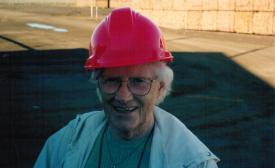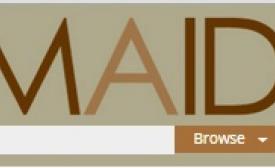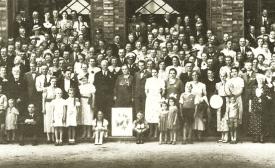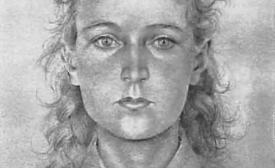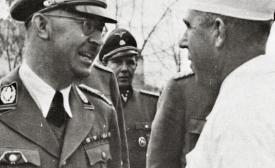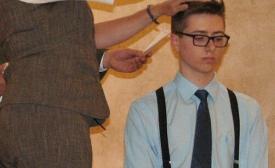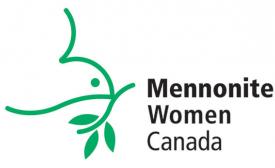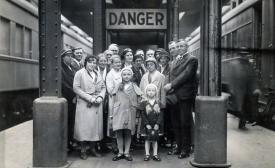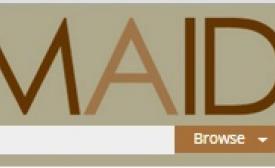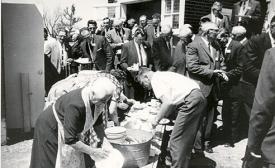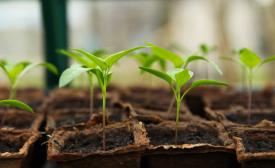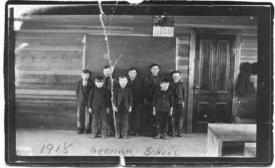Viewpoints
Irene Klassen
Irene Klassen is pictured touring a sawmill at LaCrete, Alta., in September 2003, when the Mennonite Historical Society of Alberta meeting was held in the northern Alberta town. The trip was almost a thousand kilometres, so it took a long day to get there. Participants were provided with a tour of the LaCrete Mennonite Heritage Village, the Heimstaed Lodge for seniors, and the sawmill.
Becoming Aryan
When Susanna Toews arrived in Litzmannstadt, Poland, in 1944, she was already a member of the Nazi racial elite. Her native village in Ukraine had come under German occupation in 1941 with Adolf Hitler’s invasion of the Soviet Union. During the intervening two-and-a-half years, the young Mennonite woman became a beneficiary of racial warfare.
Passing on the faith by example
As parents, you hope that you have done all that you can to nurture and encourage your children on their faith journey, and yet there is that inner voice telling you that you might not have done quite enough. Maybe you could have read more Bible stories when they were children. Maybe you should have prayed together more as a family.
Can MC Canada become a ‘we’?
One thing became very clear during the Future Directions Task Force conversation: In the imagination of most of us, Mennonite Church Canada is an “it” or a “they.” Currently, we experience the larger denomination—including the area churches—as an entity apart or distinct from the local congregation.
Stronger regionalism weakens national church
I have always been part of the Mennonite world, having been called to Jesus Christ in my early years; active in the fellowship of the church throughout my youth; and trained by the church through Canadian Mennonite Bible College, Winnipeg, Anabaptist Mennonite Biblical Seminary, Elkhart, Ind., and Colgate Rochester Crozer Divinity School, Rochester, N.Y.
Readers write: June 20, 2016 issue
Reading the gospels led reader to ‘faith in a living Christ’
Re: “The Bible is full of shortcomings and biases” letter, May 9, page 10.
Not a fragile faith
‘You say goodbye, I say hello’
A long time ago, my high school physics teacher defined work as moving something from one place to another. “You could work all day trying to move a boulder,” he expanded, “and if you hadn’t actually shifted the position of the boulder, technically speaking, you wouldn’t have worked.” His definition left its mark on my teenage brain.
Alexander Fast
Alexander Fast (1888-1942), front row right, and his second wife Selinde Fast (1894-1973) fled to Germany from Russia during the Russian Revolution and were immigrants to Canada in 1928. In this photo, taken in 1933, they are at the Winnipeg train station with friend C.F. Klassen (behind Alexander), leaving for British Columbia.
The pursuit of truth (Pt. 6)
In an article entitled “Has militant atheism become a religion?” published on Salon.com (March 24, 2013), primatologist Frans de Waal writes, “In my interactions with religious and nonreligious people alike, I now draw a sharp line, based not on what exactly they believe but on their level of dogmatism. I consider dogmatism a far greater threat than religion . . . .”
Readers write: June 6, 2016 issue
Recommendation of same-sex inclusion will lead to exodus
Re: “It could soon be ‘time to run’ ” letter, April 25, 2016, page 10.
‘Who’ before ‘how’
Lessons from spilled milk
“Don’t cry over spilled milk.” This little English phrase must have been coined by a parent watching her child pour milk into a cup. When our emerging independence turns to “needing” to pour our own milk, a parent can only watch with horror. The cup is off-centre, the pitcher trembles, and the liquid is like a tsunami bursting onto a beach.
Dish washing
Readers write: May 23, 2016 issue
Intent of Star Wars review is to criticize culture of violence
Re: “Star Wars review promotes violence against women,” April 11, page 11.
Cultivating imagination
Tending our mothers’ gardens
I am writing this column on Mother’s Day weekend. As I weed flowerbeds, memories of my hardworking mothers and their gardens dance in my head. Gram Miller—Anna Estelle—grew up in the mountains of West Virginia, in a large family that was intimately acquainted with poverty. Growing food was necessary for survival.
What are you planting this spring?
May. It’s the time of year when many of us who have, or aspire to have, a green thumb turn our minds to gardening. Some may have already been nursing self-propagated seedlings for weeks, waiting for the right time to transplant them outside. Others make the trip to the local garden centre for flower or vegetable seedlings.
Neu Kronsthal
This is a photo of the privately run Mennonite school in Neu Kronsthal, Man. John Kroeker (1910-82) is front row far right, and his brother Klaas Kroeker (1907-92) stands behind him. Mennonites coming from Russia in the 1870s were promised freedom of education as well as freedom of religion, believing it was the role of the church and family to educate children, not the state.



